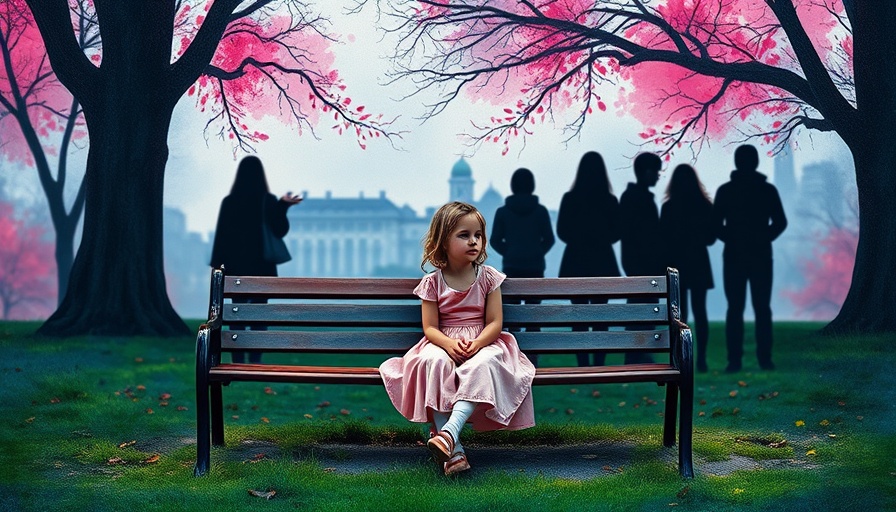
The Roots of Exclusion: Understanding Our Mean Instincts
The journey of experiencing exclusion begins in childhood, where social dynamics often resemble that of a pack of animals, striving for hierarchy and acceptance. This natural instinct can show itself in profound, yet hurtful ways. Whether through cliques in schools or dynamics in workplaces, the pattern of exclusion often molds our interactions. It prompts a key question: is meanness simply a learned behavior, or is it a fundamental aspect of human nature?
Why We Exclude: Instincts and Environmental Influence
Throughout various studies in psychology, it has been reported that social structures play a crucial role in shaping human behavior. The phenomenon of exclusion is not merely a trait but emerges as a survival instinct, much like the experiences observed in animal herds. As observed with the author's mare, who evolved from outcast to enforcer, similar behaviors manifest in human social circles. This configuration signifies a deeper instinct where belonging often comes at the cost of others' feelings. We become agents of exclusion without even realizing it and sometimes become complicit in fostering environments of cruelty.
From Innocent Behavior to Hurtful Actions: How to Recognize and Change
Exclusion can start innocently enough, perhaps as a harmless joke or casual teasing. However, understanding the consequences is essential, as highlighted by the author’s reflection on her childhood laughter at Claire. The transformation from innocent behavior to actual harm speaks volumes about the subtlety of our actions. By recognizing these moments, we become empowered to change them, both in ourselves and those around us.
Building a Culture of Inclusion: Practical Insights
The instinct to exclude can breed a toxic atmosphere, but we have the power to create a culture of inclusion instead. Consider simple strategies such as active listening, empathy while interacting, and the consciousness of our words. People thrive in environments where they feel valued and respected. Making a conscious effort to include others, even in small ways, contributes significantly to reducing exclusion.
Future Predictions: Will Kindness Prevail?
In an increasingly digital world, social media has facilitated both exclusionary and inclusive practices. Future trends suggest a movement towards fostering kindness and belongingness, with many communities actively promoting inclusivity through campaigns and workshops. By opening the conversation around meanness and exclusion, society can transform into one where kindness prevails and exclusion is addressed openly.
This isn’t Just About Kids: Adults Can Change Too
Adults are not immune to the need for belonging, which often affects their behaviors at work and within social circles. The workplace, similar to childhood environments, can breed cliques and exclusion. Addressing this requires consistent effort towards fostering inclusivity, challenging existing social hierarchies, and facilitating open dialogues about feelings, experiences, and personal stories.
A Call for Empathy: Breaking the Cycle
A true understanding of how our social instincts impact our behaviors can empower us to embrace a kinder approach. Let’s strive not just to break free from the mean instinct but also to empower those around us. When we choose to respond with empathy, even when it’s challenging, we change the narrative and contribute to a more inclusive society.
 Add Row
Add Row  Add
Add 




 Add Row
Add Row  Add
Add 

Write A Comment